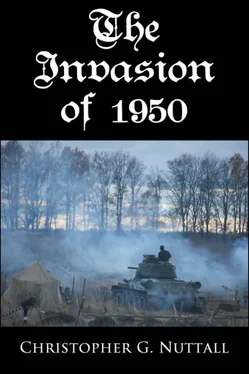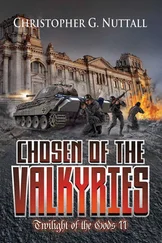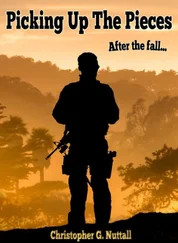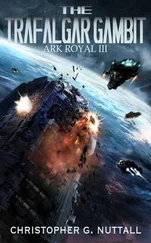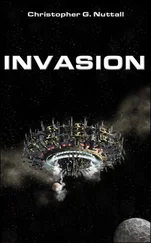Rommel’s face darkened and replied coldly, “I see. It wouldn’t be the first time that the Kriegsmarine has failed to live up to its promises. Can we rely on the Luftwaffe to make up the shortfall?”
Obergruppenführer Marius Grieger, the Luftwaffe’s representative on Rommel’s staff, hesitated just long enough to earn a glare from his superior. “I have been assured that every transport and fighter in the Luftwaffe will be attached to your force with instructions to haul across everything that you need. The RAF will attempt to interdict the transports, but by the sheer scale of our efforts, we will prevent them from cutting your supply lines entirely.”
“It sounds excellent,” Baeck said carefully. “How much can we get through per day?”
Grieger named a figure. Baeck swore and noted, “ Herr Obergruppenführer , a single armoured division needs much more than that each day. We have a stockpile that we built up here over the weeks, but we are going to be digging into that almost immediately and at current rate of expenditure, we are going to be running short of almost everything in two weeks. If the British mount an attack, that stockpile will shrink much faster. I dare say that we couldn’t hold out for more than a day or two before the stockpile runs out completely.”
“We have will and determination on our side,” Hauptsturmfuehrer Grauer Wulfenbach proclaimed. Baeck glared at him and was dimly amused to see Rommel do the same. “We have the right and might to see us through this crisis.
Baeck gave him an icy look. The SS man had recited SS dogma, but he preferred a French doctrine. Fire kills . If the French had paid more attention to that, they might have reshaped the face of Europe instead of the Reich . The SS might boast of how capable it’s soldiers were — and the Waffen-SS was respected by even the regular army — but none of them were bullet-proof, like that American comic book character. Besides, if an eighty-year-old man could shoot down the great Otto Skorzeny, the others couldn’t be all that great. The BBC was still gloating over that incident.
“Once we run out of ammunition, we will be unable to fight,” he said. “We require time and we will not have that time. As soon as the British realise what they have done, they will move at once to attack us and reduce the lodgement to nothing.”
Standartenfuhrer Ludwig Stahl spoke with a lazy precision, “There is a simpler question. How long until the supply lines can be re-established?”
“We need to relocate several destroyers and draw air support from the Luftwaffe ,” Wulff answered. “We couldn’t send anything at night, for example, and supply lines would have to be altered at a moment’s notice if one of the British battleships came charging down the Channel. It will take us at least a week to be confident that we could get something across the Channel, and as long as the British are alert, they might take a bite out of it.”
“A week,” Stahl said. “Could we hold out for a week?”
Rommel commented as he nodded. “No German Field Marshal has ever surrendered. We will hold the line as best as we can, but attempt to avoid contact with the enemy as much as possible. If pressed, we will attempt a fighting retreat and hold the armoured units in reserve to seal off any major British penetration of our lines.”
“Good,” Stahl said. “We will keep the British population off the streets.”
Rommel glared at him and Baeck shuddered. Rommel had been furious when the Felixstowe Wives had been killed, and almost apoplectic about several other reprisals that Stahl had ordered, but there was no stopping him now that he had the Führer’s permission. Threatening to kill someone for disobeying orders was fine, and shooting someone caught in the act was fine, but killing people for no good reason was simply not acceptable. The wives, as far as anyone knew — even Stahl had admitted as much — had been innocent victims. How had they merited death? Killing people who had obeyed orders and done nothing to harm the Reich convinced others that they had nothing to lose. There had been a spate of killings, attacks and sabotage directed against the Reich . They couldn’t allow the distraction…
But Stahl had ensured that they would be distracted. Rommel ordered, “You will do it with as little violence as possible. I am calling up half your security force to support Das Reich and you don’t need the distraction.”
Stahl glared at him. “You don’t have the authority to order anything like…”
Rommel said pleasantly, but with an icy undertone of pure threat in his voice. Wulfenbach stared forward and was halted in his tracks by a glare. “It’s already done, Standartenfuhrer . You can complain to the Fuhrer later, but right now I have a war to fight. I will commandeer your men, your equipment, and anything else I need to win the battle against our enemies… or would you like to explain to the Fuhrer how you allowed us to be pushed out of England because you were more concerned about the limits of my authority than his great victory over the British? I allow a certain amount of informality, but even my patience has its limits.”
Baeck’s felt his hand fall to the pistol at his belt as Rommel’s voice hung in the air. He hoped that Stahl would recognise the threat before it was too late. Rommel had plenty of loyal men who would be quite happy to assassinate Stahl and blame it on the British insurgents.
Rommel, as supreme commander, had found a way to limit the damage Stahl could actually do and by assigning the SS men to Das Reich , they wouldn’t even be able to claim that they were being moved away from their own people. The commander of Das Reich would have no time for whining from the security forces.
“We can expect a British attack fairly soon,” Rommel said ignoring the tension in the room. “I intend to meet that attack and destroy it. Towards that end, I want a safe and secure rear area. You will not commit any acts of reprisal without my direct permission, understand?”
Stahl managed to look as if he was humouring Rommel. “Of course,” he said. “ Herr Generalfeldmarschall …”
“Good,” Rommel agreed. He put the map on the table and pointed down at the various defensive lines. “I want the remains of 7th Panzer to remain here, supported by…”
* * *
“That… man ,” Wulfenbach burst out, as soon as they were alone together. The fury in his voice was no surprise to his commanding officer. “How dare he speak to you like that?”
Stahl gave him a pleasant smile. “Like what?”
“Like he was in command,” Wulfenbach protested. “No Wehrmacht officer has the right to dictate to an SS man under any circumstances…”
“Be quiet,” Stahl commanded, allowing some of his own anger to show. Wulfenbach would never make field grade unless he learned to be more adaptable under pressure. His only good attributes were an unshakable loyalty towards the SS and a unflinching attitude towards the more unpleasant, but necessary, acts that the SS needed to commit from time to time. “There are political issues here, understand?”
He cut Wulfenbach off before he could make more than a token comment. Wulfenbach continued explaining to his dense underling, “The Reichsführer-SS wanted to ensure that Occupied Britain becomes mainly an SS state controlled by us for the benefit of the SS and the Reich , as what is good for us is good for the Reich . The recent change in the war situation is not necessarily to our advantage. If our illustrious Generalfeldmarschall is unable to prevent the British from stabbing back into our lodgement, the invasion will come to an end and we will be lucky not to fall into British hands.”
Читать дальше
